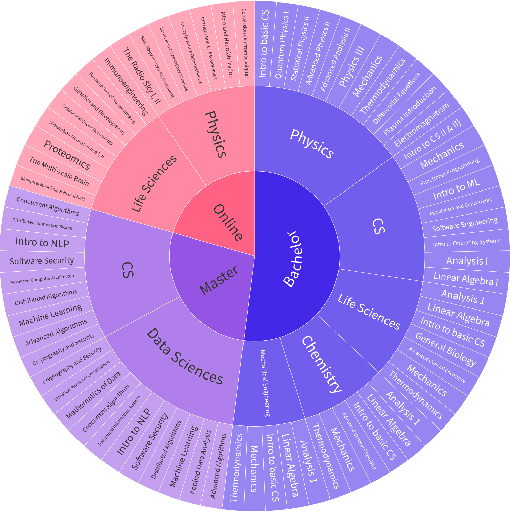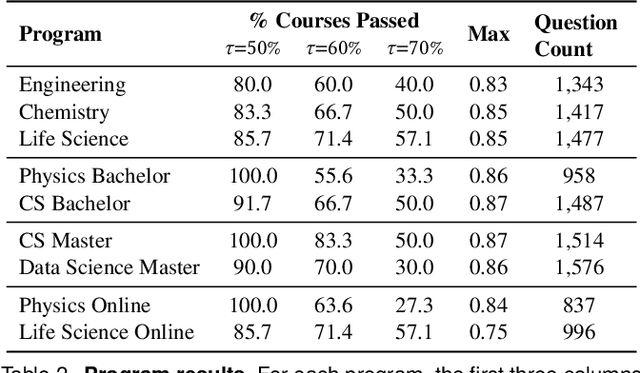Patrick Jermann
Could ChatGPT get an Engineering Degree? Evaluating Higher Education Vulnerability to AI Assistants
Aug 07, 2024



Abstract:AI assistants are being increasingly used by students enrolled in higher education institutions. While these tools provide opportunities for improved teaching and education, they also pose significant challenges for assessment and learning outcomes. We conceptualize these challenges through the lens of vulnerability, the potential for university assessments and learning outcomes to be impacted by student use of generative AI. We investigate the potential scale of this vulnerability by measuring the degree to which AI assistants can complete assessment questions in standard university-level STEM courses. Specifically, we compile a novel dataset of textual assessment questions from 50 courses at EPFL and evaluate whether two AI assistants, GPT-3.5 and GPT-4 can adequately answer these questions. We use eight prompting strategies to produce responses and find that GPT-4 answers an average of 65.8% of questions correctly, and can even produce the correct answer across at least one prompting strategy for 85.1% of questions. When grouping courses in our dataset by degree program, these systems already pass non-project assessments of large numbers of core courses in various degree programs, posing risks to higher education accreditation that will be amplified as these models improve. Our results call for revising program-level assessment design in higher education in light of advances in generative AI.
Capturing "attrition intensifying" structural traits from didactic interaction sequences of MOOC learners
Sep 20, 2014

Abstract:This work is an attempt to discover hidden structural configurations in learning activity sequences of students in Massive Open Online Courses (MOOCs). Leveraging combined representations of video clickstream interactions and forum activities, we seek to fundamentally understand traits that are predictive of decreasing engagement over time. Grounded in the interdisciplinary field of network science, we follow a graph based approach to successfully extract indicators of active and passive MOOC participation that reflect persistence and regularity in the overall interaction footprint. Using these rich educational semantics, we focus on the problem of predicting student attrition, one of the major highlights of MOOC literature in the recent years. Our results indicate an improvement over a baseline ngram based approach in capturing "attrition intensifying" features from the learning activities that MOOC learners engage in. Implications for some compelling future research are discussed.
Your click decides your fate: Inferring Information Processing and Attrition Behavior from MOOC Video Clickstream Interactions
Sep 16, 2014



Abstract:In this work, we explore video lecture interaction in Massive Open Online Courses (MOOCs), which is central to student learning experience on these educational platforms. As a research contribution, we operationalize video lecture clickstreams of students into cognitively plausible higher level behaviors, and construct a quantitative information processing index, which can aid instructors to better understand MOOC hurdles and reason about unsatisfactory learning outcomes. Our results illustrate how such a metric inspired by cognitive psychology can help answer critical questions regarding students' engagement, their future click interactions and participation trajectories that lead to in-video & course dropouts. Implications for research and practice are discussed
 Add to Chrome
Add to Chrome Add to Firefox
Add to Firefox Add to Edge
Add to Edge